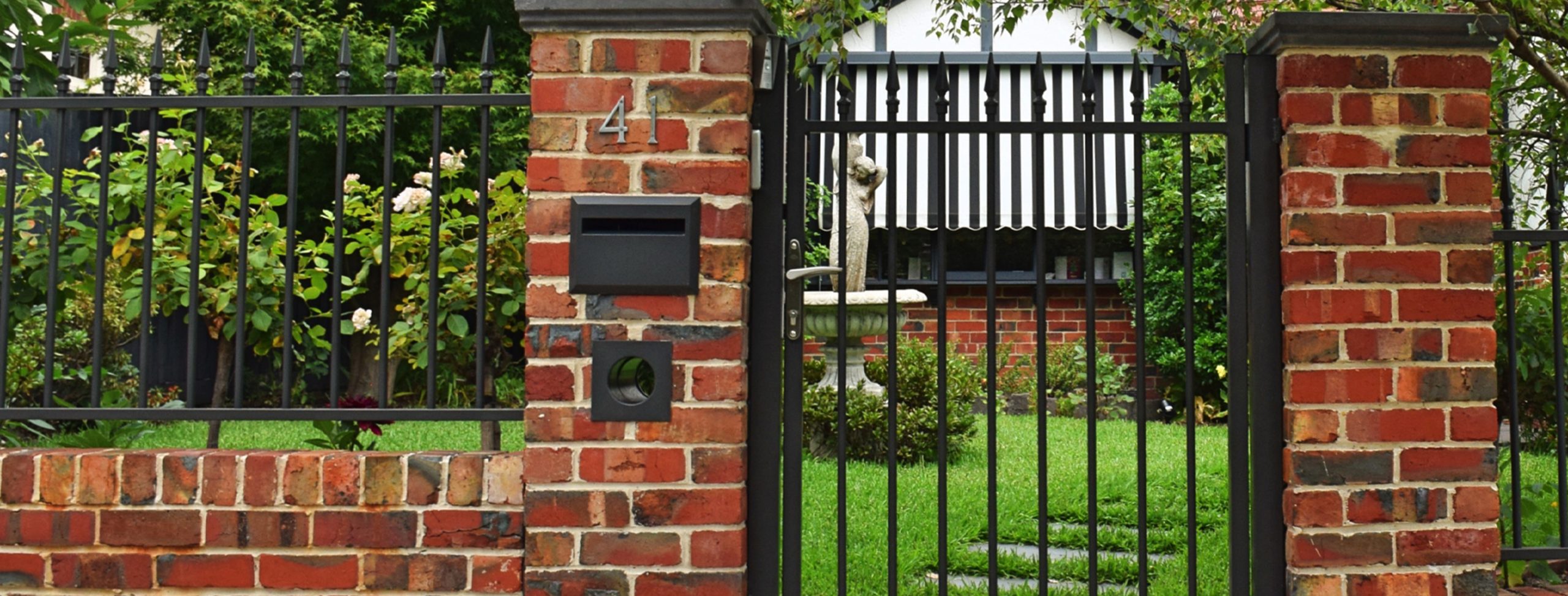All Categories
Featured
If you're considering setting up a fencing around your property, comprehending the license demands in your location is necessary. In this guide, we'll damage down the various licenses you might need to install a fence and how to ensure your project remains compliant with local laws.
Why Are Permits Essential for Fence Installation? Permits are required to guarantee that the fence you develop adheres to local building regulations, zoning policies, and safety and security criteria. These authorizations are in location to shield your building, the properties around you, and the setting. They make sure that the fence won't obstruct utilities, web traffic circulation, or develop hazards for pedestrians. Additionally, they assist keep the structural and visual honesty of your neighborhood.
![]()
Types of Permits You Might Demand. Building Permit. A structure authorization is the most common need for setting up a fence. If your fence surpasses a particular height (usually around 6 feet), you may require to acquire a structure license.
Zoning License. A zoning authorization makes certain that your fence conforms with these policies. Your fence could need to be set back a specific distance from pathways or building lines.
Homeowners Organization (HOA) Authorization. You may need approval prior to setting up a fencing if your home is component of a home owners association. HOAs often have strict rules regarding the kind, style, and materials made use of for fences to maintain an uniform appearance throughout the area. The HOA might require you to send detailed plans or request authorization prior to installation. Ensure you follow these guidelines to avoid prospective fines or charges.
Specialized Permits. Sometimes, you may need specialized permits based upon the location of your residential or commercial property or the nature of your fence. As an example, if your building remains in a flood zone, you may need extra licenses to guarantee that your fence does not obstruct drainage or water circulation. If you plan to develop a fencing near an environmentally safeguarded location, you may need a special authorization to abide with environmental regulations.
![]()
Energy Easements and Utility Firm Authorizations. Some buildings have energy easements, which are locations assigned for energy cables, lines, or pipelines. Before mounting a fencing, you have to check if your property has an easement. Constructing a fencing within an easement might disrupt utility upkeep or damage underground lines. You might require authorization from the energy company or regional authorities before proceeding with the installation.
Just How to Figure Out Which Permits You Required. Consult Local Authorities. The primary step in determining the authorizations needed is to contact your regional structure department or zoning office. They can provide specific information about what authorizations are necessary for your area. Numerous cities have online resources or sites where you can inspect the requirements or perhaps get a permit online.
Consult a Specialist Fencing Professional. A regional fence professional is typically aware of the permit procedure and regional policies. They can aid you navigate the requirements and make certain that your project is certified. Several service providers likewise deal with the authorization application process on your behalf, saving you time and initiative.
Testimonial Your Neighborhood's HOA Standards. If you reside in an area controlled by an HOA, ensure to assess their guidelines prior to requesting any kind of authorizations. The HOA may call for certain layouts, materials, or height constraints for fencings within the area. Submit your strategies to them for authorization prior to proceeding.
![]()
Effects of Not Obtaining an Authorization. Mounting a fencing without the needed permits can bring about major effects. You may deal with penalties, be gotten to remove the fencing, or be called for to renovate the installation to meet code needs. Furthermore, marketing your home can be made complex if the fence doesn't meet local laws. Prospective buyers might think twice to buy a home with an unpermitted fencing, especially if it remains in infraction of zoning laws.
Conclusion. Before mounting a fencing on your property, make sure you understand the regional guidelines and acquire any type of needed permits. Structure licenses, zoning licenses, HOA approvals, and specialty permits all play a vital role in making certain that your fence is risk-free, lawful, and compliant.
Why Are Permits Essential for Fence Installation? Permits are required to guarantee that the fence you develop adheres to local building regulations, zoning policies, and safety and security criteria. These authorizations are in location to shield your building, the properties around you, and the setting. They make sure that the fence won't obstruct utilities, web traffic circulation, or develop hazards for pedestrians. Additionally, they assist keep the structural and visual honesty of your neighborhood.

Types of Permits You Might Demand. Building Permit. A structure authorization is the most common need for setting up a fence. If your fence surpasses a particular height (usually around 6 feet), you may require to acquire a structure license.
Zoning License. A zoning authorization makes certain that your fence conforms with these policies. Your fence could need to be set back a specific distance from pathways or building lines.
Homeowners Organization (HOA) Authorization. You may need approval prior to setting up a fencing if your home is component of a home owners association. HOAs often have strict rules regarding the kind, style, and materials made use of for fences to maintain an uniform appearance throughout the area. The HOA might require you to send detailed plans or request authorization prior to installation. Ensure you follow these guidelines to avoid prospective fines or charges.
Specialized Permits. Sometimes, you may need specialized permits based upon the location of your residential or commercial property or the nature of your fence. As an example, if your building remains in a flood zone, you may need extra licenses to guarantee that your fence does not obstruct drainage or water circulation. If you plan to develop a fencing near an environmentally safeguarded location, you may need a special authorization to abide with environmental regulations.

Energy Easements and Utility Firm Authorizations. Some buildings have energy easements, which are locations assigned for energy cables, lines, or pipelines. Before mounting a fencing, you have to check if your property has an easement. Constructing a fencing within an easement might disrupt utility upkeep or damage underground lines. You might require authorization from the energy company or regional authorities before proceeding with the installation.
Just How to Figure Out Which Permits You Required. Consult Local Authorities. The primary step in determining the authorizations needed is to contact your regional structure department or zoning office. They can provide specific information about what authorizations are necessary for your area. Numerous cities have online resources or sites where you can inspect the requirements or perhaps get a permit online.
Consult a Specialist Fencing Professional. A regional fence professional is typically aware of the permit procedure and regional policies. They can aid you navigate the requirements and make certain that your project is certified. Several service providers likewise deal with the authorization application process on your behalf, saving you time and initiative.
Testimonial Your Neighborhood's HOA Standards. If you reside in an area controlled by an HOA, ensure to assess their guidelines prior to requesting any kind of authorizations. The HOA may call for certain layouts, materials, or height constraints for fencings within the area. Submit your strategies to them for authorization prior to proceeding.

Effects of Not Obtaining an Authorization. Mounting a fencing without the needed permits can bring about major effects. You may deal with penalties, be gotten to remove the fencing, or be called for to renovate the installation to meet code needs. Furthermore, marketing your home can be made complex if the fence doesn't meet local laws. Prospective buyers might think twice to buy a home with an unpermitted fencing, especially if it remains in infraction of zoning laws.
Conclusion. Before mounting a fencing on your property, make sure you understand the regional guidelines and acquire any type of needed permits. Structure licenses, zoning licenses, HOA approvals, and specialty permits all play a vital role in making certain that your fence is risk-free, lawful, and compliant.
Latest Posts
Experience the Roaring '20s at Twenties Restaurant
Published Dec 19, 24
1 min read
Just How Can I Include Attractive Functions to My Fence?
Published Dec 19, 24
0 min read
What Permits Are Needed for Setting Up a Surround My Location?
Published Dec 19, 24
0 min read